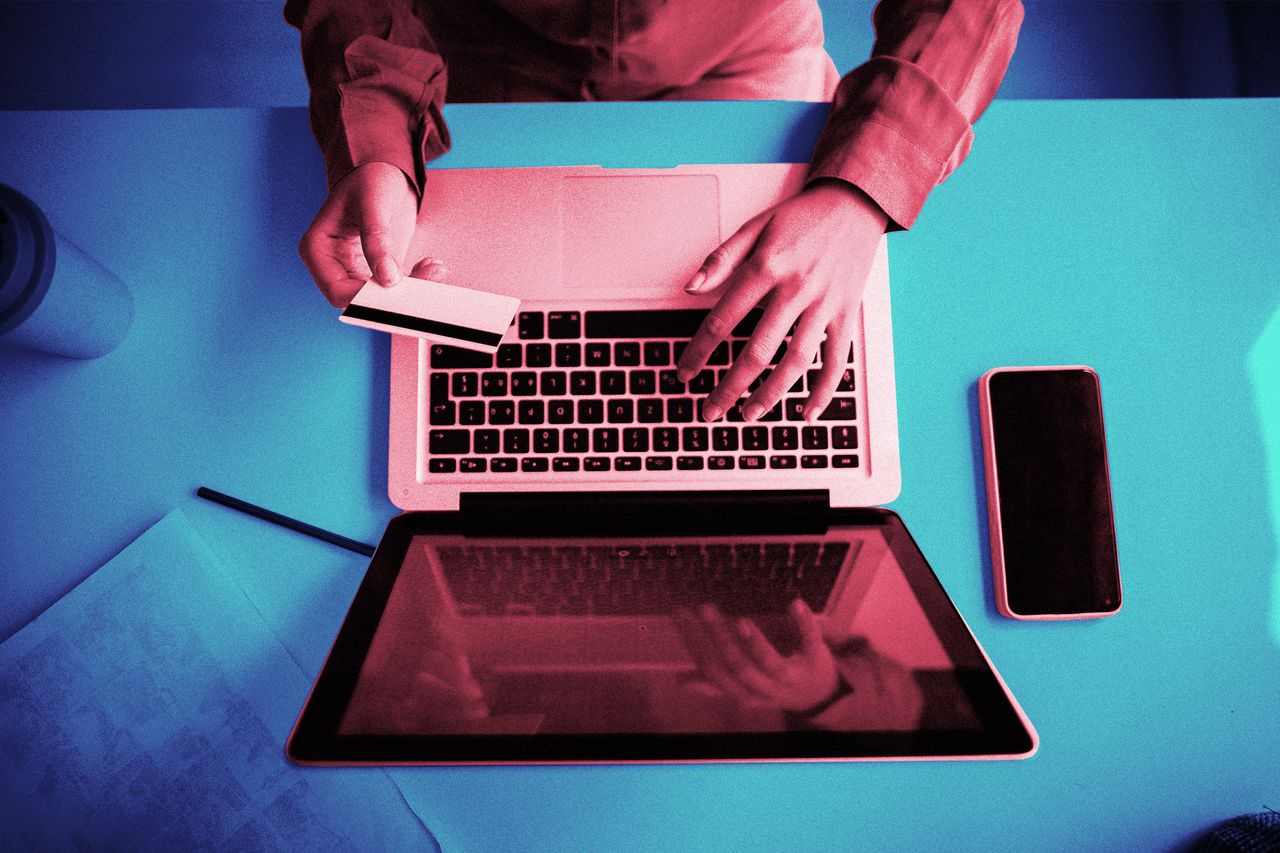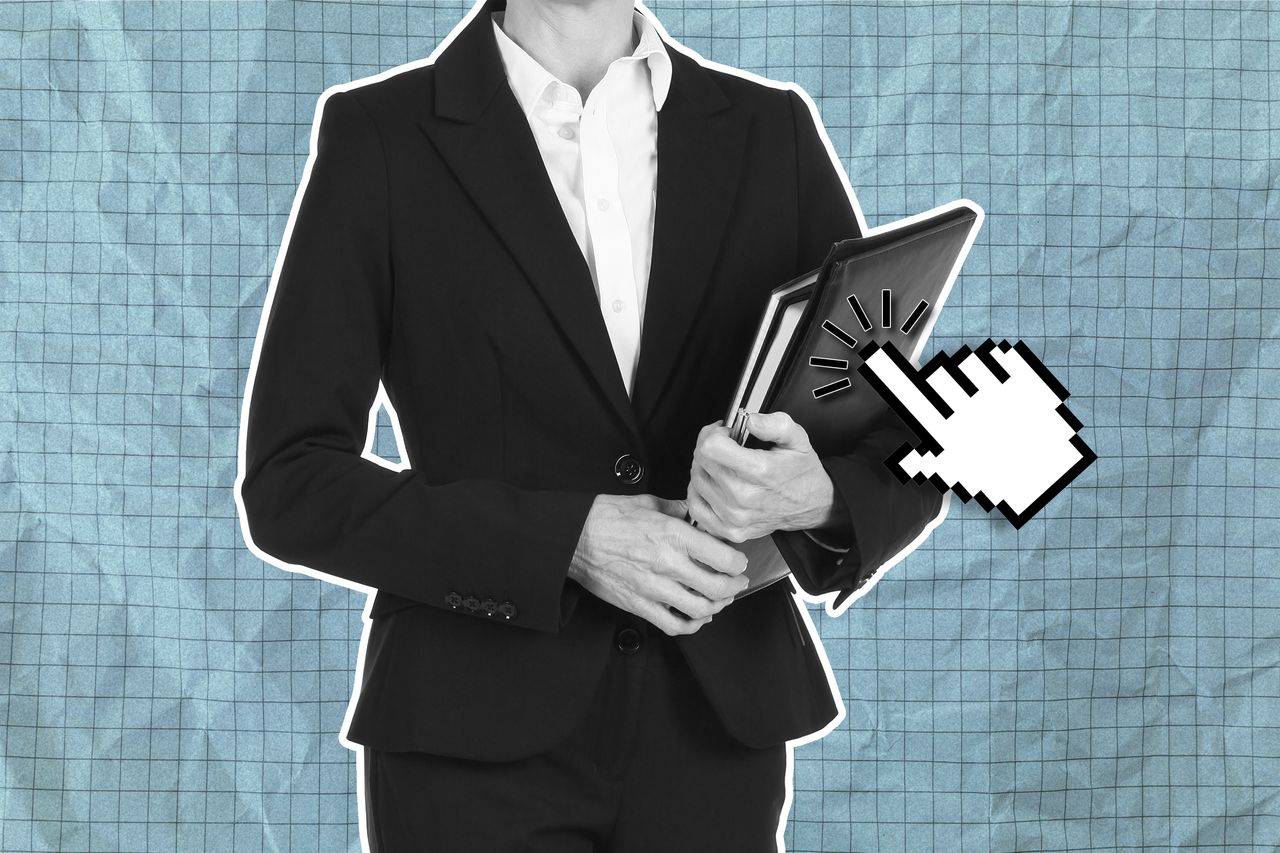Retailers Hate That You Buy Big Things on Your Laptop
People often prefer bigger screens and keyboards for pricier purchases—but merchants have more levers to pull on mobile
Shoppers want to make significant purchases on their laptops. Retailers really want them to do more on their phones.
Lately, the retailers are winning more often.
Mobile e-commerce has for years been hailed as the future of shopping . Online shops as well as airlines and hotels have upgraded and pushed apps or mobile-optimised websites as a way to get our attention—and access to our wallets. By using push notifications , mobile-only deals and other levers, vendors can tempt customers to make quick, unplanned purchases.
It’s finally working, as this past holiday season was the first time mobile-revenue share surpassed desktop, reaching 61% on Christmas Day, according to data from Adobe .
But that increase masks what shoppers say they want, particularly when it comes to large purchases. They often call these “big-screen purchases”—shopping done on computers. You might not like a retailer’s app or mobile website. You might prefer a web browser with extensions that track coupons or price changes. You might just want a second window open to check a calendar or a map.
And the laptop’s extra friction makes shoppers more careful: Many people say they have moved too fast on a phone, accidentally buying the wrong plane tickets.
As more companies amp up their mobile offerings to lure more shoppers away from their laptops, it’s good to be aware of the differences, especially if it could mean saving money.
Highflying purchase
Amanda Natividad, a 38-year-old vice president at a Los Angeles marketing startup, says she always opens her laptop before making a purchase.
She uses browser extensions to search for coupons and maximise credit-card benefits. It’s also easier for her to fill in her credit-card information with her computer in front of her and her password manager on hand, she says. And she can more easily double-check her calendar when booking flights.
“It’s just an old ingrained behaviour,” Natividad says. “It’s a flight, better use my computer for this.”
Many people tend to be on their phones while they’re distracted or in transit, but they use their computers when they’re at home or in the office, making it easier to focus, says Tim Calkins, a professor of marketing at Northwestern’s Kellogg School of Management.
“If you’re thinking about taking a vacation, early on you might be browsing through lots of different options and thinking generally about all the wonderful places you can go,” he says. “It is a very different mindset when you’re ready to spend thousands of dollars on booking the actual trip.”
Chasing convenience
Sarah Baicker, a 39-year-old content-marketing and communications manager in Washington Crossing, Pa., feels comfortable using her phone for almost every task or purchase, especially now that she’s chasing around a 2-year-old daughter. She booked a flight on the JetBlue app on New Year’s Day when she realised some credits were expiring.
“Sometimes it’s more annoying to make a purchase on a phone—that doesn’t bother me,” Baicker says. “I’m not bothered by a little bit of extra work for the sake of the convenience of not having to track down a secondary piece of technology.”
Companies have worked to make mobile purchases even easier. Services such as Apple Pay, Google Pay or Shop Pay automatically add in our billing and shipping information to our orders. If we’re shopping in an app, we’re usually already logged in and don’t have to dig up our credentials. (These are also available on laptop browsers, but they function smoothly within many mobile apps and shopping websites.)
Mobile shopping also scratches an itch for consumers who are scrolling their social-media feeds, with endless posts and stories shilling products to buy. When it comes to impulse shopping, 48% of people are likely to do so on a phone, compared with 19% on a laptop and 10% on a desktop, according to Slickdeals, a website that tracks sales and coupons.
The convenience factor seems to be working for many companies. In 2023, people shopped for flights on the United Airlines app 123 million times, a 23% increase from the year before, says a United spokeswoman. On Airbnb , 54% of total nights booked last quarter were done on the app, up from 49% booked during the same period a year ago, the company reported in its most recent quarterly earnings.
HotelTonight, which is owned by Airbnb, has long been a mobile-first company, with more than 90% of bookings happening on the app, and with some deals only available on mobile, says Ron Sandel, general manager of HotelTonight.
“At the end of the day, we’re a last-minute booking app. If you’re booking on the go—like so many of our users often are—you’re not pulling your laptop out to do that,” Sandel says.
A wider view
Though mobile shopping is becoming more popular, it still can’t make up for a bigger screen.
Logan Medeiros, a 23-year-old lifestyle and beauty content creator in Montreal, always pulls up her laptop to make a large purchase—such as her latest trip to Vancouver, Canada. The bigger screen makes it easier to open multiple tabs to compare hotels and flights.
That extra display real estate also prompts her to use her laptop for other purchases, such as buying clothes.
And more-mindful shoppers use their laptops to prevent impulse buys.
Alexander Lewis, a 31-year-old ghostwriter for tech companies and executives in Austin, Texas, set rules for himself to follow before buying anything online, such as mostly purchasing on a laptop and waiting at least a day before making the final call.
He says when he gets back to his cart, he often wonders whether he actually wants to read a book or own an article of clothing he saved.
“Having the internet always around us is an easy way to mindlessly spend our attention and also spend our money,” Lewis says.
 Copyright 2020, Dow Jones & Company, Inc. All Rights Reserved Worldwide. LEARN MORE
Copyright 2020, Dow Jones & Company, Inc. All Rights Reserved Worldwide. LEARN MORE
This stylish family home combines a classic palette and finishes with a flexible floorplan
Just 55 minutes from Sydney, make this your creative getaway located in the majestic Hawkesbury region.
Continued stagflation and cost of living pressures are causing couples to think twice about starting a family, new data has revealed, with long term impacts expected
Australia is in the midst of a ‘baby recession’ with preliminary estimates showing the number of births in 2023 fell by more than four percent to the lowest level since 2006, according to KPMG. The consultancy firm says this reflects the impact of cost-of-living pressures on the feasibility of younger Australians starting a family.
KPMG estimates that 289,100 babies were born in 2023. This compares to 300,684 babies in 2022 and 309,996 in 2021, according to the Australian Bureau of Statistics (ABS). KPMG urban economist Terry Rawnsley said weak economic growth often leads to a reduced number of births. In 2023, ABS data shows gross domestic product (GDP) fell to 1.5 percent. Despite the population growing by 2.5 percent in 2023, GDP on a per capita basis went into negative territory, down one percent over the 12 months.
“Birth rates provide insight into long-term population growth as well as the current confidence of Australian families,” said Mr Rawnsley. “We haven’t seen such a sharp drop in births in Australia since the period of economic stagflation in the 1970s, which coincided with the initial widespread adoption of the contraceptive pill.”
Mr Rawnsley said many Australian couples delayed starting a family while the pandemic played out in 2020. The number of births fell from 305,832 in 2019 to 294,369 in 2020. Then in 2021, strong employment and vast amounts of stimulus money, along with high household savings due to lockdowns, gave couples better financial means to have a baby. This led to a rebound in births.
However, the re-opening of the global economy in 2022 led to soaring inflation. By the start of 2023, the Australian consumer price index (CPI) had risen to its highest level since 1990 at 7.8 percent per annum. By that stage, the Reserve Bank had already commenced an aggressive rate-hiking strategy to fight inflation and had raised the cash rate every month between May and December 2022.
Five more rate hikes during 2023 put further pressure on couples with mortgages and put the brakes on family formation. “This combination of the pandemic and rapid economic changes explains the spike and subsequent sharp decline in birth rates we have observed over the past four years,” Mr Rawnsley said.
The impact of high costs of living on couples’ decision to have a baby is highlighted in births data for the capital cities. KPMG estimates there were 60,860 births in Sydney in 2023, down 8.6 percent from 2019. There were 56,270 births in Melbourne, down 7.3 percent. In Perth, there were 25,020 births, down 6 percent, while in Brisbane there were 30,250 births, down 4.3 percent. Canberra was the only capital city where there was no fall in the number of births in 2023 compared to 2019.
“CPI growth in Canberra has been slightly subdued compared to that in other major cities, and the economic outlook has remained strong,” Mr Rawnsley said. “This means families have not been hurting as much as those in other capital cities, and in turn, we’ve seen a stabilisation of births in the ACT.”
This stylish family home combines a classic palette and finishes with a flexible floorplan
Just 55 minutes from Sydney, make this your creative getaway located in the majestic Hawkesbury region.






















